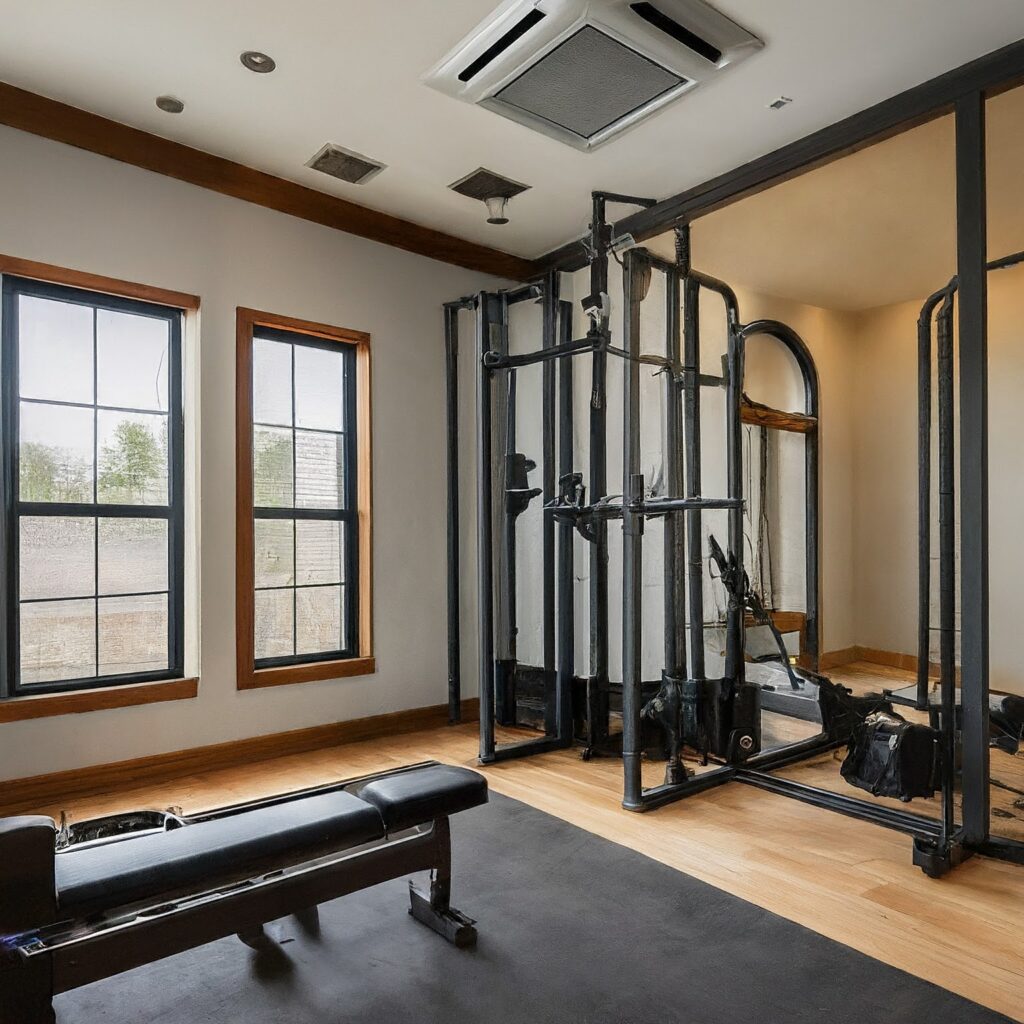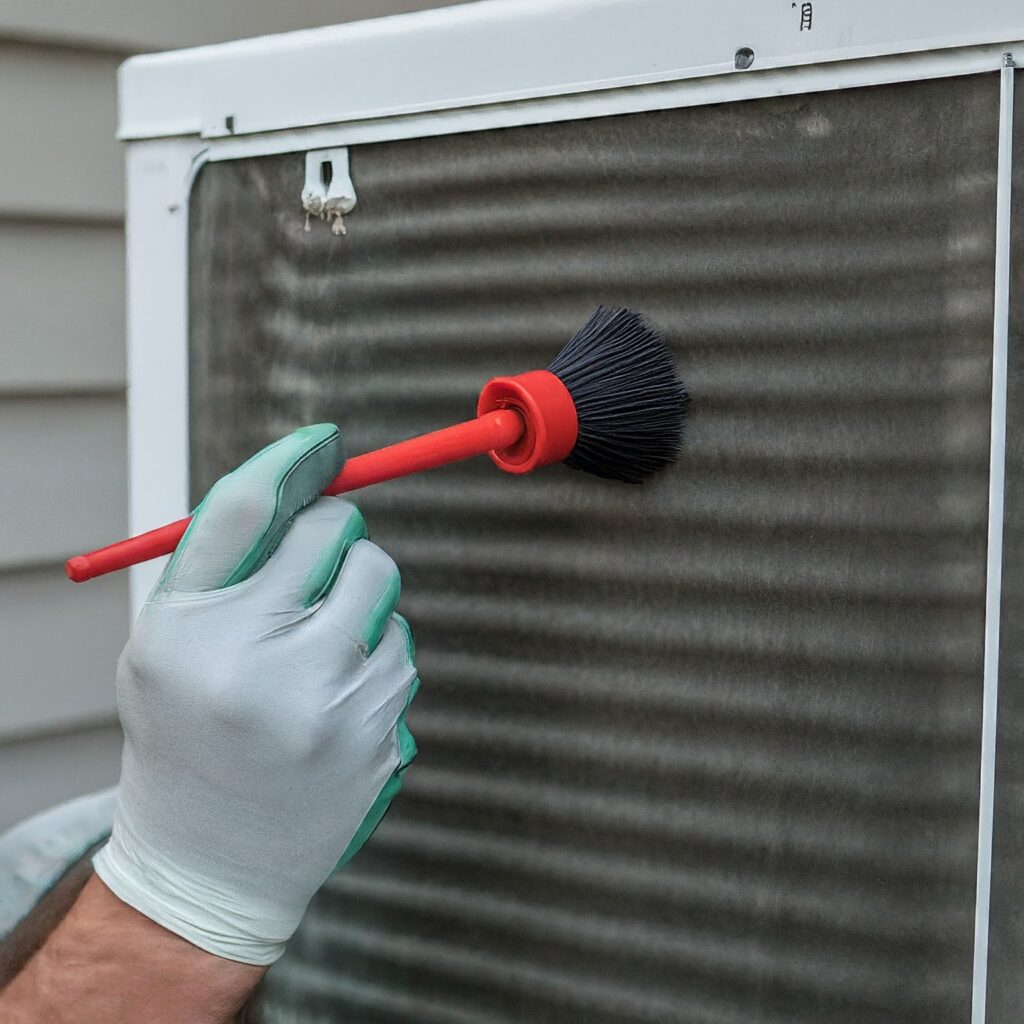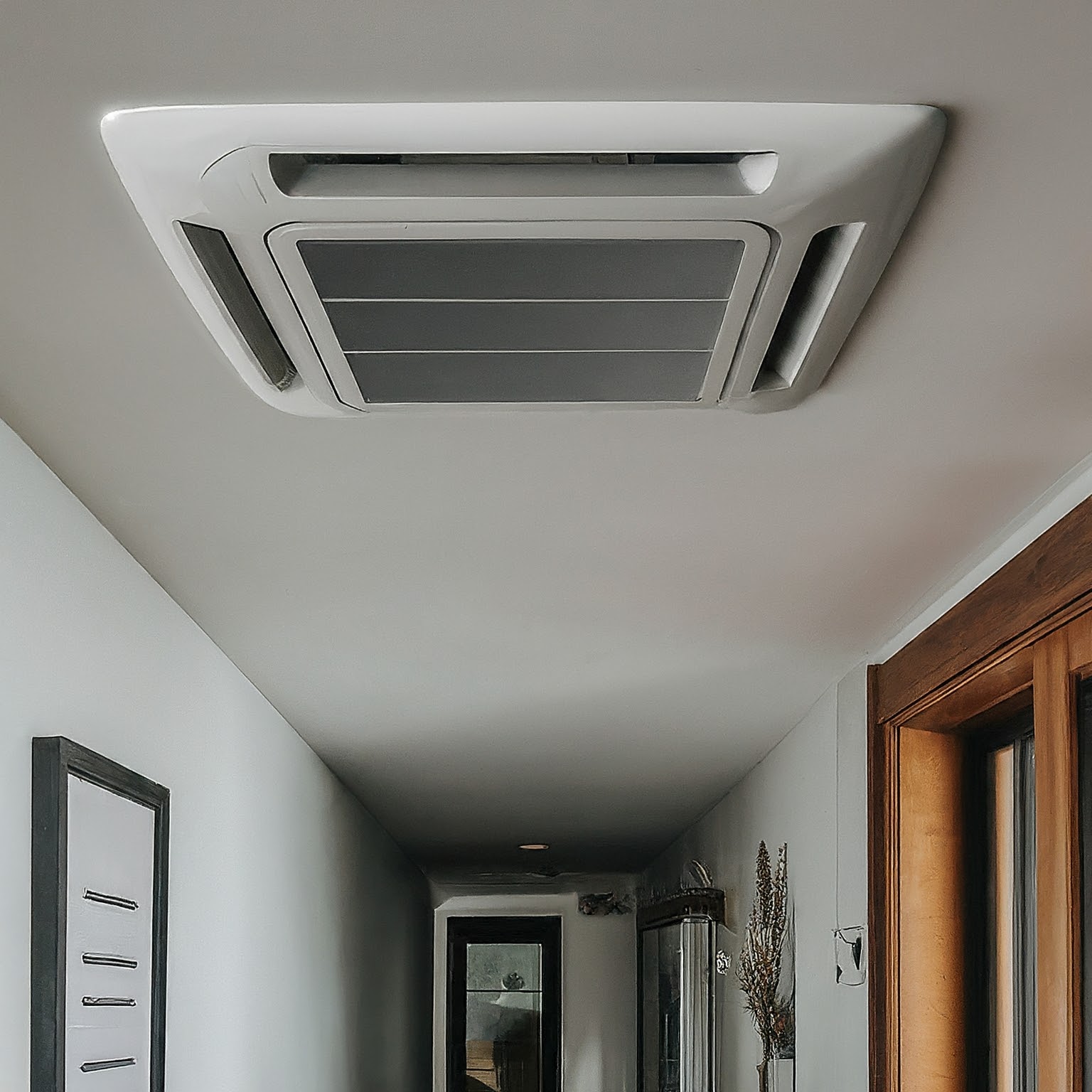Addressing Humidity Issues with Your HVAC System for Better Air Quality
Introduction
When it comes to indoor air quality, humidity levels play a crucial role in creating a comfortable and healthy living or working environment. Both excessively high and low humidity can have detrimental effects on your health, as well as the integrity of your home or building. At American Home and Commercial Services, we understand the importance of maintaining optimal humidity levels and offer comprehensive solutions to address humidity issues through your HVAC (Heating, Ventilation, and Air Conditioning) system.
Understanding Humidity and Its Impact
What is Humidity?
Humidity refers to the amount of water vapor present in the air. It is typically measured as relative humidity, which is the ratio of the actual water vapor content to the maximum amount of water vapor the air can hold at a given temperature. Maintaining appropriate humidity levels is crucial for indoor air quality, comfort, and overall health.
The Effects of High Humidity
High humidity levels, generally above 60% relative humidity, can create an environment conducive to the growth of mold, mildew, and other harmful microorganisms. Additionally, excessive moisture in the air can lead to:
- Increased Allergens and Respiratory Irritants: High humidity can exacerbate allergies, asthma, and other respiratory issues by promoting the growth of dust mites, mold spores, and other airborne allergens.
- Musty Odors and Structural Damage: Persistent high humidity can lead to musty odors and potentially cause structural damage to buildings, as excess moisture can weaken or rot wood, drywall, and other building materials over time.
- Decreased Comfort Levels: When the air feels “sticky” or oppressive due to high humidity, it can make it difficult to achieve a comfortable indoor environment, even with air conditioning running.
The Effects of Low Humidity
On the other hand, low humidity levels, typically below 30% relative humidity, can also have negative consequences:
- Increased Susceptibility to Respiratory Infections: Dry air can irritate and dry out the mucous membranes in the respiratory system, making it easier for viruses and bacteria to take hold and cause infections.
- Static Electricity and Damage to Electronics: Low humidity can lead to a buildup of static electricity, which can cause shocks and potentially damage sensitive electronic equipment.
- Damage to Wood Surfaces: Excessively dry air can cause wood surfaces, such as hardwood floors, furniture, and trim, to crack, warp, or split over time.
- Skin and Eye Irritation: Low humidity can exacerbate certain skin conditions like eczema and cause dry, itchy skin, as well as dry, irritated eyes.
The Role of Your HVAC System in Humidity Control
Your HVAC system plays a vital role in regulating indoor humidity levels, in addition to maintaining comfortable temperatures. Here’s how it works:
Cooling and Dehumidification
During the cooling process, your air conditioning unit removes moisture from the air through condensation on the evaporator coils. As warm air passes over these cold coils, the moisture in the air condenses, and the resulting condensate is drained away. This dehumidification effect helps to lower humidity levels, providing a more comfortable and healthier indoor environment.
The efficiency of this process depends on various factors, including the size and capacity of your air conditioning unit, proper airflow, and regular maintenance to ensure the coils and other components are operating correctly.

Heating and Humidification
On the other hand, when the heating system is in operation, it can contribute to lower indoor humidity levels as warm air has a higher capacity to hold moisture. To counteract this effect, many HVAC systems have built-in humidifiers or offer the option to integrate whole-home humidification systems.
Humidifiers work by introducing water vapor into the air stream, increasing the relative humidity levels and preventing the air from becoming too dry during the heating season. Proper humidification can help alleviate respiratory issues, static electricity buildup, and damage to wood surfaces caused by excessively dry air.
Solutions for Humidity Control from American Home and Commercial Services
At American Home and Commercial Services, we offer a range of solutions to help you address humidity issues and improve indoor air quality through your HVAC system.
HVAC System Maintenance and Tune-ups
Regular maintenance and tune-ups of your HVAC system are essential for ensuring optimal humidity control. Our technicians will:
- Clean and Inspect Evaporator Coils: Dirty or obstructed evaporator coils can hinder the system’s ability to effectively remove moisture from the air during the cooling process. Our technicians will thoroughly clean and inspect these coils to ensure efficient dehumidification.
- Check Condensate Drain Lines: Clogged or leaking condensate drain lines can lead to excess moisture buildup, contributing to high humidity levels. We will inspect and clear any blockages or repair any leaks to ensure proper drainage.
- Verify Refrigerant Levels: Low refrigerant levels can impact the system’s ability to remove moisture from the air during cooling. Our technicians will check and adjust refrigerant levels as needed.
- Inspect and Adjust Humidifier Components: If your HVAC system includes a built-in humidifier, our team will inspect and adjust its components, such as the water supply, drainage systems, and humidifier pads or mist nozzles, to ensure proper operation and maintain desired humidity levels during the heating season.
Whole-Home Dehumidification Systems
If your home or building struggles with persistent high humidity levels, we may recommend installing a whole-home dehumidification system. These systems work in tandem with your HVAC system to remove excess moisture from the air, helping to prevent mold growth, musty odors, and other humidity-related issues.
Whole-home dehumidifiers are designed to efficiently remove excess moisture from the air, even in areas where your air conditioning system may not be as effective. They can be integrated into your existing HVAC system or installed as standalone units, depending on your specific needs and the layout of your home or building.
Whole-Home Humidification Systems
Conversely, if you’re dealing with low humidity levels, we can install or service a whole-home humidification system. These systems introduce moisture into the air, preventing dryness and associated issues like respiratory irritation, static electricity, and damage to wood surfaces.
Whole-home humidifiers can be installed as part of your HVAC system or as standalone units, depending on your specific requirements. Our team will help you choose the right type of humidifier, such as steam humidifiers, bypass humidifiers, or evaporative humidifiers, based on factors like water quality, energy efficiency, and the size of your living or working spaces.

HVAC System Upgrades and Replacements
In some cases, addressing humidity issues may require upgrading or replacing your existing HVAC system with a more efficient and advanced model. Our team can guide you through the selection process, recommending systems with enhanced dehumidification capabilities or integrated humidification components to better control indoor humidity levels.
Modern HVAC systems often feature advanced humidity control features, such as variable-speed compressors or dedicated dehumidification modes, which can help maintain optimal humidity levels more effectively than older systems. Additionally, newer systems tend to be more energy-efficient, reducing your overall operating costs while improving indoor air quality.
Air Quality Assessments and Monitoring
To ensure optimal indoor air quality, we offer comprehensive air quality assessments and ongoing monitoring services. Our technicians can measure humidity levels, identify potential sources of moisture or dryness, and provide recommendations tailored to your specific needs.
During an air quality assessment, we may utilize specialized equipment like hygrometers, moisture meters, and air sampling devices to gather data on your indoor environment. This information can help us pinpoint areas of concern and develop targeted solutions for addressing humidity issues and improving overall air quality.
Duct Cleaning and Air Sealing
Proper duct cleaning and air sealing can also contribute to improved humidity control. By removing accumulated debris and sealing any duct leaks, we can prevent moisture from being introduced into your HVAC system, reducing the risk of mold growth and other humidity-related issues.
Our duct cleaning process involves a thorough inspection of your ductwork using advanced camera technology, followed by the use of powerful vacuum systems and specialized tools to remove any buildup of dust, debris, or contaminants. Additionally, our technicians can seal any identified leaks or gaps in your ductwork to prevent unconditioned air from entering the system and affecting humidity levels.
Ventilation Improvements
In some cases, improving ventilation may be necessary to address humidity issues and enhance indoor air quality. Our team can assess your home or building’s ventilation system and recommend solutions such as installing energy recovery ventilators (ERVs) or heat recovery ventilators (HRVs).
These systems work by introducing fresh outdoor air into your living or working spaces while expelling stale indoor air, helping to maintain optimal humidity levels and improve overall air quality. By controlling the flow of fresh and exhaust air, ERVs and HRVs can help prevent excessive moisture buildup or dryness, depending on your specific needs.
Pros:
- Improved indoor air quality and reduced risk of mold, mildew, and other humidity-related issues.
- Enhanced comfort levels by maintaining optimal humidity levels throughout your living or working spaces.
- Reduced energy costs as your HVAC system operates more efficiently when humidity levels are properly controlled.
- Extended lifespan of your HVAC equipment and building materials by preventing moisture-related damage.
- Increased protection against respiratory issues, allergies, and other health concerns associated with improper humidity levels.
- Potential for increased productivity and better sleep quality in a properly humidified environment.
- Improved indoor air circulation and ventilation, further enhancing air quality.
- Prevention of musty odors and potential structural damage caused by excessive moisture.
Cons:
- Additional costs associated with installing and maintaining whole-home dehumidification or humidification systems.
- Increased energy consumption and operating costs for these additional systems.
- Potential for water leaks or condensation issues if systems are not properly installed or maintained.
- Disruption during installation or maintenance of new systems, HVAC upgrades, or ventilation improvements.
- Ongoing monitoring and adjustments may be required to maintain optimal humidity levels.
- Certain solutions, such as whole-home dehumidifiers or ERVs, may require additional ductwork or modifications to your existing HVAC system.
Conclusion
Maintaining proper humidity levels is essential for ensuring a comfortable, healthy, and energy-efficient indoor environment. At American Home and Commercial Services, we understand the crucial role your HVAC system plays in addressing humidity issues and offer comprehensive solutions to help you achieve optimal air quality.
Our team of experienced technicians can assess your specific needs, recommend and install whole-home dehumidification or humidification systems, perform HVAC system upgrades or replacements, and provide ongoing maintenance and monitoring services to ensure your humidity levels remain within the desired range. We also offer duct cleaning, air sealing, and ventilation improvements to further enhance indoor air quality and humidity control.
By partnering with us, you can enjoy the numerous benefits of properly controlled humidity, including improved indoor air quality, enhanced comfort, and protection against mold, respiratory issues, and other health concerns. Contact us today to schedule an assessment and take the first step towards a healthier, more comfortable living or working environment.



